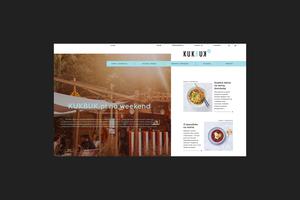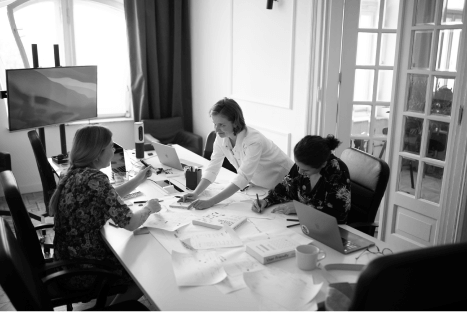
Own the product, not the idea
Date 27 March 2022
Don't pursue your idea. It may sound strange, but creating a digital product is not about realizing your ideas, but about finding the best solution to the user's problem.
It's not easy to let go of an idea you're fascinated with, which is why many start-up founders mistakenly take on the role of the owner of the IDEA at all costs - they get attached to the brilliant idea they came up with and blindly pursue what's in their head at all costs. This often involves copying an idea from another industry into their own - for example, making a "Tinder for recruiters and employees" or an "Uber for removals". Thus, they impose on the contractor to copy exactly the same solutions. Such thinking is based on the assumption that "if it worked there and they earn millions on it, it must work for me too". But it doesn't, because as Marty Cagan, the former leader of products like eBay and Netscape, puts it: "At least half of our ideas don't work".

Whether you're commissioning the product yourself (you're a "finder") or overseeing the work on behalf of your company, the moment you come to the contractor, you formally assume the role of product owner (and that's what I'll call you from now on). As the product owner, you are the person who pays the contractor, makes the final business decisions, and thus has a very responsible role in the entire process. Mistakes made by the product owner, often lead to project failure.
There's a reason I pay attention to who you are and what your role is called. Your goal, and the goal of the team you hire, should be to build a product in the full sense of the word - that is, not to turn your idea into a working application, but to create something that meets your business goals (most often the goal is to make money) and then increase its value.
Therefore, your first task that you should do is to find the answer to the question: why am I doing this? This will help you define your business goal and look at your project. This will allow you to be outcome-oriented, and not locked into output - making an app for the sake of making an app. You will begin to look more broadly at the mission of building the "business".
You will also change your approach to finding a contractor. Don't look for a team that will simply execute a commissioned application, but a team that will help you achieve your goal. Communicate your expectations this way, too. You should hire missionaries who are committed to finding a solution, not "contractor-subcontractors" who will unreflectively do exactly what you tell them.
Insights
View AllLet us inspire you.
- InsighteBOOK: How to build products that make money
![Product discovery advice: Own the product, not the idea]()
- Insight5 exercises to do if you are developing a digital product
![Product discovery advice: Own the product, not the idea]()
- Case studyVOGUE POLAND: Mobile App
![Product discovery advice: Own the product, not the idea]()
- Case studyKUKBUK: Portal
![Product discovery advice: Own the product, not the idea]()



